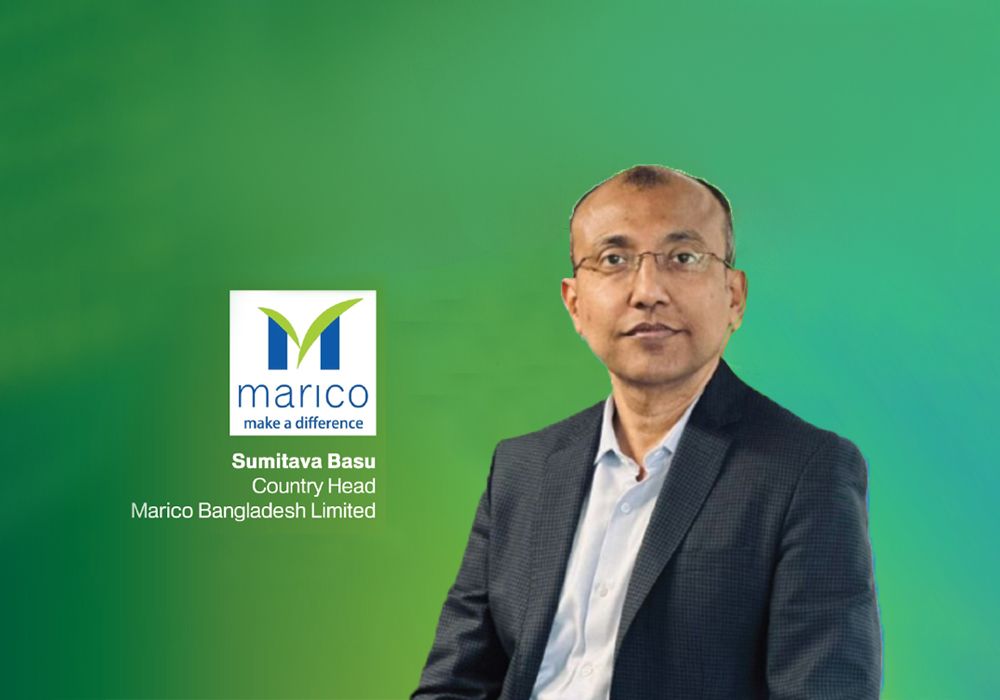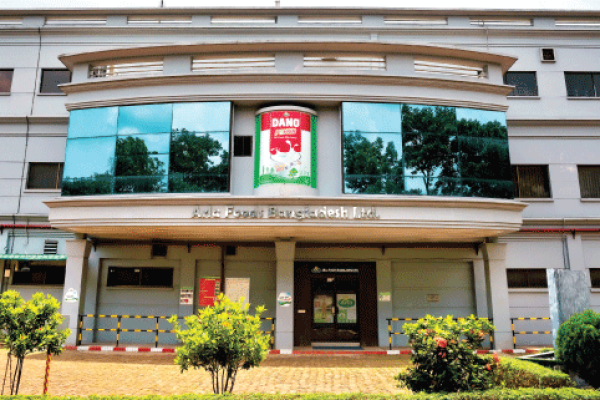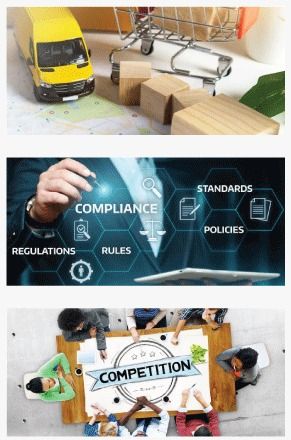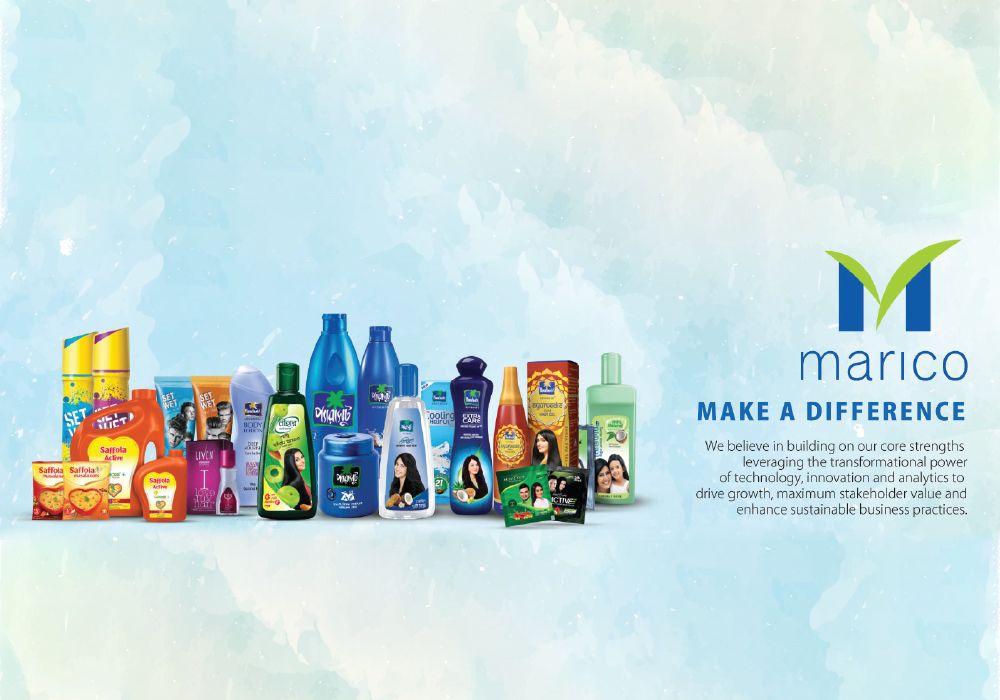- info@ficci.org.bd
- |
- +880248814801, +880248814802
- Contact Us
- |
- Become a Member
- |
- |
- |
- |
- |

Introduction
The Fast-Moving Consumer Goods (FMCG) sector in Bangladesh stands as a pivotal force driving economic advancement and reflecting the nation's swift development. This industry, encompassing a diverse array of products including food and beverages, personal care and household care, is marked by its dynamism and resilience. This article explores the current landscape, growth drivers, challenges, and opportunities within the FMCG sector, with a particular focus on the contributions and insights from Marico Bangladesh.
Current Landscape
The FMCG market in Bangladesh is experiencing robust growth, fueled by a growth in human capital and rising disposable incomes. Dominated by Brands of multinational corporations and formidable regional brands, the sector is characterized by intense competition and innovation. Consumer trends reveal a shift towards branded and premium products, driven by urbanization and evolving lifestyles. Furthermore, the digital transformation is reshaping consumer behavior, with e-commerce emerging as a significant growth channel.

Growth Drivers:
1. Economic Growth and Rising Incomes: Bangladesh's sustained economic growth, with its impressive GDP trajectory, has led to increased consumer spending power. This economic prosperity has expanded the demand for a wide spectrum of FMCG products, from essential commodities to high-end goods.
2. Urbanization and Changing Lifestyles: The rapid pace of urbanization has significantly influenced consumer preferences. The growing urban populace, coupled with a younger demographic, is gravitating towards convenience oriented products, ready-to-eat meals, and innovative personal care solutions.
3. Rising Aspirations and Global Connections: Aspirations among all segments of consumers is rising with time. Given that Bangladesh is globally well connected, latest trends travel fast from across the globe. Democratization of solutions that are affordable opens up new opportunities for growth. Building on this trend, organisations are diversify- ing. Marico Bangladesh, to share a context, has diversified its brand portfolio in the last 5 years, entering new categories such as Hair cleansing Shampoos, Cooling Oils, Skin Care, Baby Care, Men's Grooming and Food.
4. Digital Transformation and E-commerce: The widespread adoption of smartphones and internet connectivity has revolutionized the shopper landscape. E-commerce platforms are gaining prominence, offering consumers the convenience of online shopping and home delivery. This digital shift provides FMCG companies with opportunities to expand their reach and enhance customer engagement. Since 2022, Marico Bangladesh's e-commerce sector has achieved 15% growth - double the industry rate - through strategic execution, partnerships, and innovative campaign, leveraging the ongoing digitally transforming consumer journey.

Challenges
Despite the promising outlook, the FMCG sector faces several challenges:
1. Supply Chain Issues: Efficient supply chain management is crucial for the FMCG sector's success. Infrastructure bottlenecks, logistical inefficiencies, and seasonal disruptions can potentially pose significant challenges. Only Organisations that invest in robust supply chain solutions to ensure right product availability and timely delivery stand to benefit.
2. Regulatory Environment: Understanding and operating within the complex regulatory framework in Bangladesh is an important tenet for any organisation in the Country. Compliance with various regulations pertaining to quality standards, labeling, and taxation requires meticulous attention and high level of rigour. Companies must stay abreast of regulatory changes to ensure consumer expectations are met with compliance.
3. Market Saturation: Market saturation in certain product categories necessitates innovative marketing solutions, new strategies and reinvent- ing product differentiation levers to maintain a competitive edge.
Opportunities
Despite the challenges, the FMCG sector is ripe with opportunities:
1. Emerging New Categories and Market Segments: There is significant untapped potential in the form of new categories and market segments such as rural markets and lower-income group consumer segments. Tailoring products and solutions at the right, accessible price points to meet the unique needs of consumers can unlock new growth avenues.
2. Building strong Brands with Consumer Centricity and Competitiveness: The FMCG market is intensely competitive, with numerous players vying for consumer attention. Brands which understand and have a close ear to consumers' evolving needs will grow from strength to strength, while brands which are disconnected are at a risk of losing consumer relevance. Brands that better understand emerging needs and solve them ahead of the curve will have first mover advantage. This requires a long term vision, focus and investments in strong Marketing Teams; Marketing processes from consumer understanding to landing the right value proposition accurately, and strategic Brand Development Capabilities as key levers for success.
3. Innovation and Product Development: Continuous innovation is important in the FMCG industry. Companies investing in R&D for new products, flavors, and formulations capture consumer interest and build new categories and build large businesses. Marico Bangladesh's journey is testament to this; strategic expansion in hair care, baby care and skin care segments has been instrumental in driving growth over the last 5 years.
4. Strong Sales and Distribution Channel Development: Given the large geographical terrain of Bangladesh, organizations that invest in establishing strong distribution channels in general trade and build robust sales systems will build an edge in taking brands to consumers' doorsteps. This requires sustained investment and capability develop- ment in building right sales structures and a culture of execution excellence and forward thinking. Marico Bangladesh has nurtured and built strong relationships across different channels such as Grocers, Cosmetics and Wholesale in both urban and rural geographies; this has been an important pillar in the growth journey.
5. People: FMCG organizations need strong leadership and culturally-aligned, high performance teams for success. Marico believes in nurturing talent, giving early empowerment and providing a canvas for members to paint their dreams. This has led to the creation of a large number of leaders from Marico who now lead organizations as CEOs and lead different functions as Heads of Department across different organizations in Bangladesh.
6. Sustainability and Ethical Practices: Consumers are increasingly prioritizing sustainability and ethical consider- ations in their purchasing decisions. FMCG companies that adopt environmentally friendly practices, reduce plastic usage, and ensure fair trade practices can enhance their brand reputation and attract a loyal customer base. Marico Bangladesh remains committed to sustainability and social responsibility, executing 31 projects in FY'24 that reduced power consumption and carbon emissions. Additionally, the acclaimed SWAPNO program, with Marico's partnership highlights significant contributions to social and financial inclusion.

Statement from the Country Head of Marico Bangladesh: Mr. Sumitava Basu, Country Head, Marico Bangladesh Ltd says,
"Bangladesh offers a uniquely favorable environment for FMCG businesses to flourish. The combination of a growing economy, a youthful and dynamic population and increasing digital connectivity, creates immense opportunities for innovation and growth. At Marico Bangladesh, we are committed to leveraging these opportunities to deliver superior value to our consumers. We believe in creating brands designed and tailored uniquely to the needs of consumers in the country. 99% of our business is from Brands proudly made in Bangladesh. Our focus on sustainability, ethical practices, and community engagement not only drives our business success but also contributes to the broader socio-economic development of the country. We believe in the potential of Bangladesh and are dedicated to playing a key role in the continued growth and transformation of the FMCG sector."
Future Outlook
The future of the FMCG sector in Bangladesh appears promising, with continued economic growth and consumer optimism. Companies should focus on building strong Brands, expanding general trade and emerging channel distribution, leveraging e-commerce and digital technologies, investing in supply chain enhancements, and embracing sustain- ability to stay ahead of the curve. Strategic partnerships and collaborations can also drive innovation and market expansion.
Conclusion
The FMCG sector in Bangladesh is poised for sustained growth, driven by a confluence of favorable economic and demographic factors. By addressing challenges and capitalizing on emerging opportunities, FMCG companies like Marico Bangladesh can navigate this dynamic landscape and achieve long-term success. Stakeholders across the industry must collaborate to foster innovation, enhance consumer experiences, and contribute to the nation's economic prosperity.





